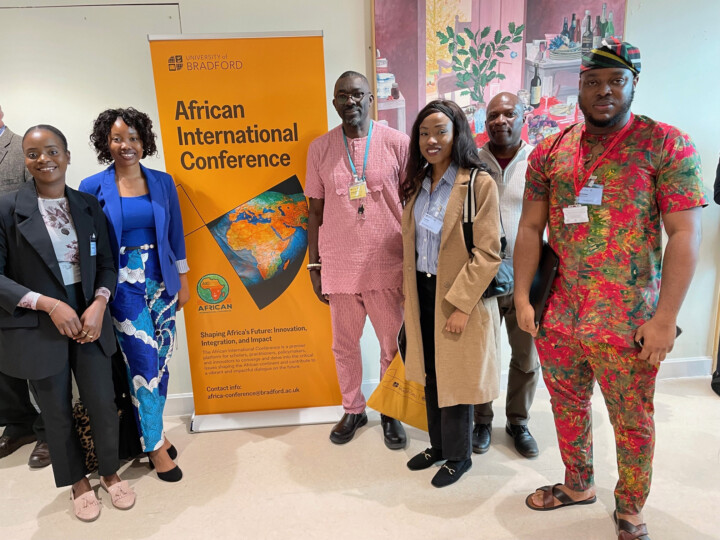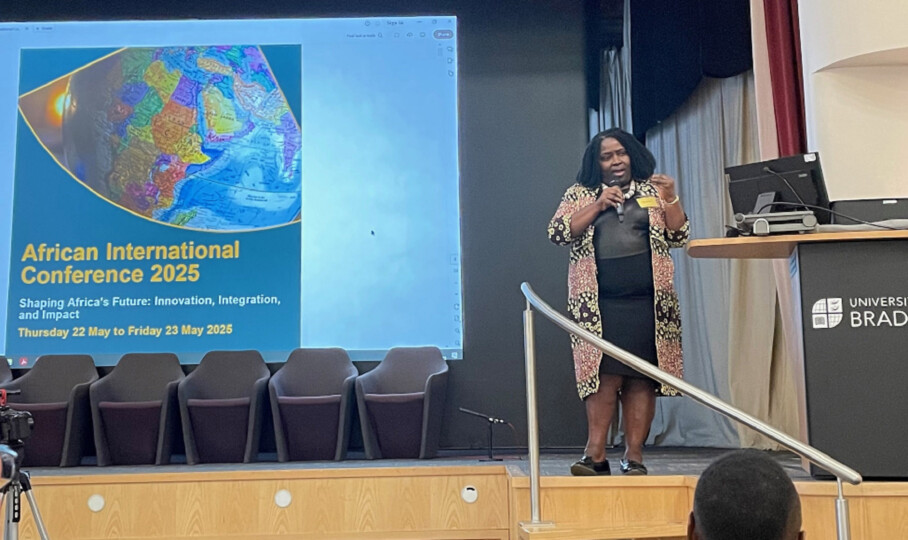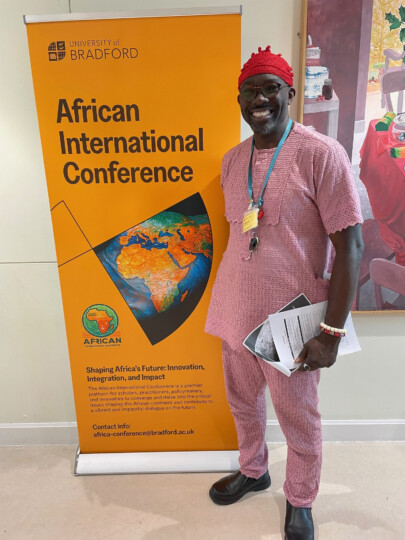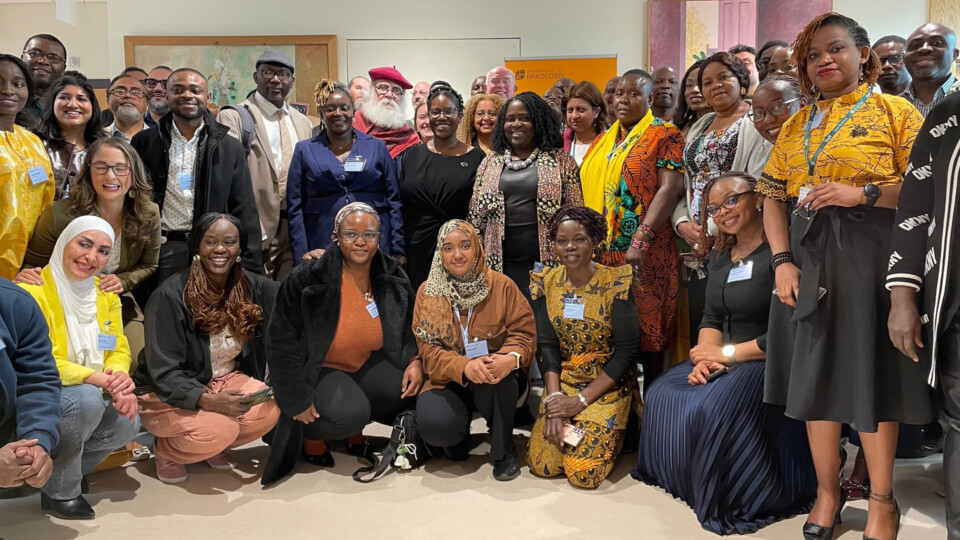Africa’s future under spotlight at conference
The shape of Africa’s future was discussed at a conference held at the University of Bradford.
‘African International Conference: Shaping Africa’s Future: Innovation, Integration and Impact’ brought together academics from around the world to discuss what the future of the continent could look like.
The two-day conference featured panel discussions on themes including economic growth in Africa, health and medicine, ageing, peacebuilding, and integration.
Dr Colins Imoh, Conference Director and Assistant Professor, Peace Studies and International Development at the University of Bradford, said: “Africa stands at a pivotal and exhilarating moment in its history.
“From burgeoning economies and technological advancements to a vibrant youth demographic and a renewed sense of agency, Africa is not merely rising; it is asserting its rightful place on the global stage.”

Some of the people who attended the ‘African International Conference’. Images credit: University of Bradford
Why was it held?
The conference provided a platform for scholars, practitioners, policymakers and innovators from across the globe to share insights and talk about the critical issues shaping Africa. Organisers say the vision is to form a network and hold the conference annually.
The continent is seeing a surge in innovation including technology, entrepreneurship, renewable energy and healthcare. The conference looked at how such innovation can be used to drive sustainable development, encourage regional integration and maximise the positive impact on African societies.

Professor Engobo Emeseh, Head of the University’s School of Law, was among the speakers at the conference. Images credit: University of Bradford
What was said at the conference
Topics under discussion included HIV/AIDS Health Inequality in Africa, with a focus on children in the Democratic Republic of the Congo, the role of education in promoting peace and reducing violence in Nigeria and digital transformation to unlock Africa’s potential through using artificial intelligence (AI).
Professor Engobo Emeseh, the conference’s keynote speaker and the University’s current Interim Dean of the Faculty of Management, Law and Social Sciences, said: “Africa’s past, present and future cannot be viewed outside of its colonial history and past colonial legacies.
“Africa is on a path of growth. For so long it has been a follower.
“Africa is a young continent, it’s exciting. Africa has a population of around one billion people. More than 60 per cent of Africans are under 25.
“Africa is transforming. The time has come for Africa’s leaders to take control of its future.”
Professor Udy Archibong, Pro Vice-Chancellor (Equality, Diversity and Inclusion) at the University of Bradford, gave the welcoming speech at the conference.

Dr Colins Imoh, Conference Director and Assistant Professor, Peace Studies and International Development at the University of Bradford. Images credit: University of Bradford
Who attended
People from Kenya, Ghana, Canada, France, Netherlands, Jordan, Ethiopia, South Sudan, Cameroon, Nigeria, Uganda, USA, Namibia, South Africa and Sierra Leone attended the conference.
Guests included Matt Meyer, Secretary-General, International Peace Research Association, and Professor Fatima Waziri-Azi, Director-General of the National Agency for the Prohibition of Trafficking in Persons (NAPTIP).
Academics from universities in the UK, South Africa and Canada were among the contributors.

